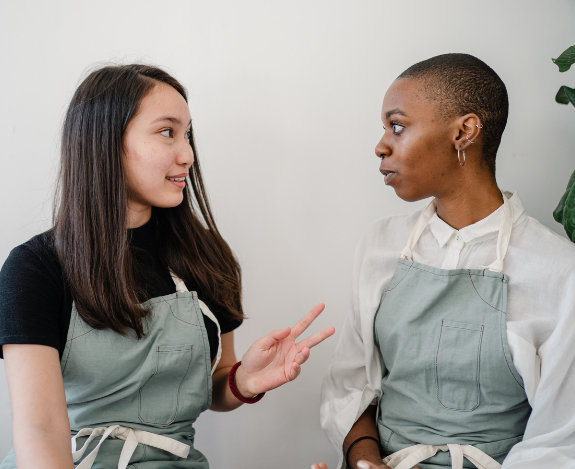
Soft skills are sometimes known as transferable skills or professional skills, and the term defines a group of attributes that are not easily learned but are an intrinsic part of your personality and attitude. They are the intangible but important ‘human skills’ and non-technical abilities that make a person well-rounded.
Soft skills include things like communication, self-motivation, leadership, problem-solving and teamwork. These can be developed through everyday interactions with friends and family, and in the way you manage your time to get your work completed.
As a graduate, your soft skills might be considered by recruiters instead of work experience – which is especially true if you are applying to a graduate program in an industry where you have no direct experience.
Developing the right soft skills, and demonstrating these through the interview process, can make the difference between success and failure in your application, especially as soft skills are a big part of EQ (Emotional Intelligence), which is considered more of an indicator for job success than IQ.
Why developing soft skills is important for students
1. Human Skills vs Machines
As AI and machine learning develops at an astonishing rate, the skills that cannot be replicated by a machine are in high demand, and this will only increase. Computers might be able to operate a machine or sort data, but they cannot effectively communicate or resolve conflicts, for example.
2. The Difference in a Job Application
If an employer receives two applications with the same professional qualifications and experience, soft skills are likely to be the deciding factor.
The candidate who demonstrates the strongest soft skills are much more likely to be chosen because they are likely to have the best culture fit or will improve the group dynamic.
3. Building Relationships
One of the most important soft skills is communication, and this is important in building and maintaining professional relationships with customers, clients and colleagues alike. Teamwork, leadership and negotiation are also important in successful team building.
4. Confidence
For newly graduated students, confidence can be a real hurdle in interviews and the workplace, but graduates who have great self-motivation and communication can feel more confident in their soft skills – making them better at influencing the interview team. They will also be better equipped to deal with any conflict or challenge in the workplace.
How to Boost Your Soft Skills
While soft skills differ from hard skills in that they do not come with ‘proof’ in the form of qualifications or certificates, there are a few ways that you can improve and demonstrate your soft skills.
- Reflection. Think about the soft skills you might already have, and how you could demonstrate them in your CV or an interview.
- Get involved in extracurricular activities. Whether you join the Student Union or a sports team, this can demonstrate your communication and teamwork.
- Organise some activities. The Union bar might want to host a weekly quiz, or why not organise a charity ball? Leadership, problem-solving and negotiation skills can be developed this way.
- Practice. Take any opportunity you can to practise using your soft skills and think of these experiences as examples that you could give in an interview.
Soft skills could be the edge you need to land that perfect graduate or placement opportunity, so any chance you get to hone these skills could make a difference in your future.
Guest blog by Nikki from Wikijobs
